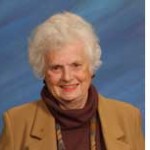By Natasha Josefowitz, Ph.D.

LA JOLLA, California — Daughter: Mother dear, I can’t believe you smashed your car into a fire hydrant. At least you didn’t get hurt.
Mother: That fire hydrant wasn’t there yesterday.
Daughter: Oh, Mom, of course it was. I wonder whether you should keep driving.
Mother: I’m fine, and I’m not giving up driving.
Daughter: You know, if you lived in a retirement community there would be a driver to take you everywhere.
Mother: Are you trying to put me away in an old-folks’ home?
Daughter: No, of course not. What I have in mind is a retirement community with lots of interesting activities.
Mother: Well, I’m not ready.
Daughter: Mom, what does ready look like—like when you’re so disabled I have to make the decision for you?
Mother: I just put new carpeting in.
Daughter: You won’t move because you want to amortize the carpet? Anyway, the new carpet will attract buyers.
Mother: I love my home, my things—my books, your grandmother’s rocking chair, the antique chest of drawers your father brought back from Europe—and neither you nor the grandchildren want any of it.
Daughter: I know, Mom, everything you have has a memory attached to it. I tell you what, I’ll take photos of all the things you need to give away, so you can keep the memory.
Mother: Your brother thinks I’m just fine as I am.
Daughter: My brother lives across the country and doesn’t know what’s going on. I do.
Mother: It’s just hard to even think about moving—I am not ready, leave me alone.
Daughter: The longer you wait, the harder it is . Moving is stressful both physically and emotionally. It is easier to do when you’re strong and still healthy. It’s better to move when you want to and not when you have to.
Mother: How do I know if I will like the people there? I like my independence.
Daughter: You won’t lose your independence—you can be as private or as social as you like—you can eat with people or eat alone. You can join the exercise classes and all the other endless activities, or you can sit quietly at home and read and watch TV—which is what you do much too much now. At least then you’ll have some choices. This is an opportunity to meet new people, go to new places. There’s a bus that takes residents to theaters, museum lectures, and concerts. Good health also depends on socializing with people.
Mother: I don’t know. It feels scary.
Daughter: Of course it does, it’s normal to be afraid of the unfamiliar. What’s scary for me is that I don’t know if you take your medications or get out of the house.
Mother: Well, I don’t want you to worry—I’m fine.
Daughter: I do worry, all the time. I was going to go on a trip but I cancelled because I thought: suppose something happens to you and I’m away. Do it for me, Mother!
Mother: Oh dear, I certainly don’t want to be a burden to my children. All right, what is this place?
Daughter: On Mom, you make me so happy. I’ll make an appointment for lunch tomorrow for you to meet the staff and take a tour of the facility, and we can look at apartments Your grandchildren will love the pool.
Mother: OK, OK. I’ll take a look, we’ll see—maybe you’re right. I know you’re doing this because you worry and you love me, and I appreciate that. I love you too. Do they have a bridge club?
*
Josefowitz is a freelance writer based in the San Diego community of La Jolla. This article initially appeared in the La Jolla Village News. Josefowitz may be contacted via natasha.josefowitz@sdjewishworld.com